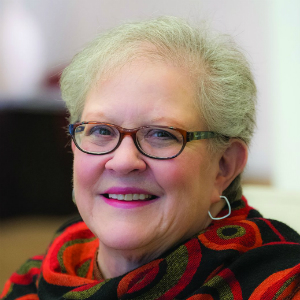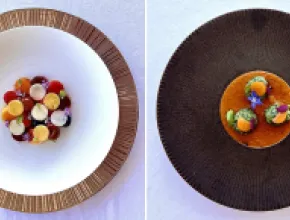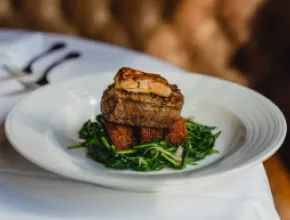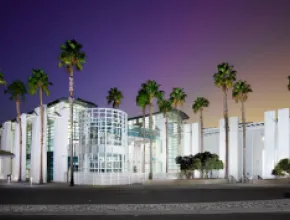Editor’s note: Both suppliers interviewed for comments about food and beverage (F&B) are speaking as individuals who happen to be officers of the National Association for Catering and Events (NACE, and on twitter at @NACENational). Their comments do not necessarily reflect those of their employers or an official NACE position.
My thanks to Donnell Bayot, founding member of TISOH: The International School of Hospitality and currently TISOH’s director of academic affairs and immediate past president of NACE, for connecting me with both James Filtz and reconnecting me with Edmund DiAntonio, with whom I’d worked in the past.
I am especially grateful to both Ed and James for their input. It is invaluable reading for planners and for planners to share with those to whom they are accountable when they must explain the cost of food and beverage for meetings.
The Meetings Today editors and I have edited these responses for clarity and length.
Those interviewed:
Edmond DiAntonio (DiAntonio), CPCE, CMP, National President, NACE
James Filtz (Filtz), CMP, CPCE, National Treasurer, NACE
Joan Eisenstodt: Please provide a summation of your career experience and your NACE involvement.
Edmond DiAntonio: I am complex director of catering/event management at the Walt Disney World Swan and Dolphin Resort in Lake Buena Vista, Florida, where I’ve worked since 2003.
I have more than 35 years of hospitality experience, primarily in catering and convention services management.
My prior employers include The Fairmont Scottsdale Princess in Arizona and The Hilton Anatole in Dallas. Then to Colorado to The Ritz-Carlton (later named the St. Regis) in Aspen, The Silvertree Hotel, Snowmass and The Westin Tabor Center, Denver.
I have also worked at The St. Francis Hotel, San Francisco; The Westin Copley Place and The Boston Park Plaza Hotel, both in Boston.
From 2010 to 2017, I was a participating member of Starwood Hotels’ catering and event management leadership committee. I currently serve on the University of Central Florida (UCF) Rosen School of Hospitality Advisory Board.
I have been active and in leadership positions within NACE for 16 years, currently serving as the NACE national president.
Previously, I served as president-elect (2017-2018), treasurer (2016-2017) and as chair of the President’s Council (2009-2010). On the board of NACE’s Orlando chapter, I was a three-term president. In 2007, I was chosen as NACE National Co-Caterer Member of The Year.
As part of the Walt Disney World Swan and Dolphin catering team, I earned Catering Magazine’s Catering Team of The Year award in 2005, Catersource’s ACE award for the South Region, in 2008, and many other accolades.
I’m passionate about our industry and continue to stay involved on a leadership level through NACE, UCF’s Rosen School of Hospitality and my employer, Marriott International.
James Filtz: I started in the culinary arena at age 15 working at a high-end downtown Philadelphia Italian restaurant, making canapes and miniature desserts for private parties.
I have a bachelor’s degree from the Culinary Institute of America and did my externship in culinary arts at The Hotel DuPont.
In 2005, I started a management training program with Hyatt at the Hyatt Lake Las Vegas Resort and was quickly promoted to catering manager. I stayed at that property for four years, during which it became a Loews hotel.
In 2008, in order to diversify my career experience, I went to The Palazzo at The Venetian Resort, where I worked in catering and convention services for small groups and assisted with the planning of large groups.
During the economic recession in 2009 I was briefly laid off and then rehired [by The Palazzo at The Venetian Resort] in less than two months to lead the wedding services department, where we planned more than 1,000 weddings per year.
I relocated to New York City in 2011, where I became meeting and event manager at the Sheraton New York Times Square Hotel, where I planned large conventions, including meetings for current and former U.S. presidents, major banks, law firms and consulting companies.
In 2014, I moved to New Haven, Connecticut, as managing director of catering for Yale University, one of the few self-operated elite food service operations in the country, where I planned and serviced student, faculty, administration and alumni events from two guests to 6,000, primarily as an off-premises caterer working in office buildings, private estates and outdoor venues.
It was in 2017 that I realized I missed hotels and came back to the hotel industry, briefly rejoining Loews in New Orleans before finding my dream job working for The Ritz-Carlton, New Orleans as director of meetings and special events.
I have been a NACE member since 2005 and have been on the national board since July 2017. I have been a chair of numerous NACE committees: Conference Advisory, Education; and served as a member of the Governance Committee.
I was a local chapter leader and board member in Las Vegas from 2006 to 2011.
[Joan’s note: Oh, how I hope he remains in New Orleans, where he can use his vast and varied experience and perhaps unpack!].
Eisenstodt: What do NACE and the industry say is the current profit percentage on F&B in hotels? I’ve heard anything from 22% to 32%.
DiAntonio: Your stated range is accurate and takes into consideration the fact that restaurant dining is far less profitable than catered dining. Catering allows facilities to offer fine dining. Fine dining helps to attract groups and individuals to a specific destination.
Filtz: It is hard to say because each hotel calculates profit differently. For banquets, I’d say a profit margin in the mid 40% range is common.
Depending on the mix of operations for a hotel and how heavily a three-meal restaurant or bar are trafficked, these figures can vary greatly. In many hotels the restaurants are treated as an amenity for the guests, not primarily as a profit center like the banquet department is.
[Joan’s note: This article about hotels eliminating services like room service and some restaurants is instructive and may change the profile of profits for future measurement].
Eisenstodt: What factors into the cost of F&B in hotels? How have those changed in the last two years? Five years?
DiAntonio: Pricing is based on numerous factors, including employee pay and associated benefits, the offering of healthier options (i.e. organic, local foods grown by smaller producers, etc.), less-impactful packaging, weather abnormalities or “climate change,” politics and food-related trade tariffs. Additionally, the changing cost of fuel, an increase in consumer need for event locations, trends, and upgrades in equipment and “look” to stay current, along with market price adjustments, all factor into the cost of F&B in hotels.
In addition to all of this, there is pressure to maintain profit percentage goals.
Filtz: Throughout my career I have worked in numerous markets where there are differences. In markets with union labor, costs can be substantially higher even if the hotel or property is non-union because competitor operations still must pay their workers a similar scale to attract talent.
Wages in these markets tend not to ever have ebbs and flows down, only up. This is especially challenging during a down market when customers expect greater pricing flexibility. As wage and benefit rates go up geometrically given the benefits (especially retirement), this can make many markets (like New York City) out of the price range for many groups.
Customers are increasingly raising their expectations of food quality and desire for sustainability. In upscale hotels, customers expect more organic F&B and look for higher quality food choices, including higher protein options, more fresh fish and more chef-driven food vs. packaged food items.
In a normal year food costs may be expected to raise 3%-5% but with customer demands, customers may expect to see higher increases as menu methodologies change.
[Bold text above is Joan's emphasis].
Eisenstodt: When working with groups, what are the top three things you wish you’d been told in the RFP and in conversations about a group’s F&B needs?
DiAntonio: I want to know their real budget, especially if it’s more than what they are asking us to create menus for.
Show us the menus, without prices is fine, from past successful conferences.
This allows us to see what the attendees’ expectations are and if we can match them with the budget given and our pricing.
Tell us the desired outcomes of a specific event--what they are hoping to accomplish. Is it just feeding the attendees or is the meal part of a presentation? Provide all key factors the hotel should be aware of when planning this event.
If planning an event with a plated meal, are you doing so to make the lunch less expensive than a buffet might be? Will guests arrive at the same or at different times?
If there is a speaker, tell us what time dessert needs to be on the table and the coffee poured.
Tell us if we can cut back from one or more events to help save money to put toward another event. That is, can there be a less elaborate breakfast or a lunch or dinner to allow a better impact for an awards banquet or other event where you want to create more of a “wow.”
Tell us how we can be involved in the planning and theme process so that we have a well-coordinated outcome. In other words, make sure that the event is entirely themed, in specific colors or time period, so that we may, if possible, offer food and beverage, service and uniforms that will best match.
In some cases, we can offer centerpieces or special linen at a reduced rate so that more monies can be spent on upgrading or enhancing the food and beverage experience.
Tell us your needs and ask us what we can provide. Then, together, let’s explore options before spending unnecessary funds on other sources.
These are just a sampling of examples that a hotel needs to know prior to proposing menus. The more information we have, the better we can meet expectations and budget.
Filtz: Tell us the event sizes and F&B needs, and whether they are conservative or are they aggressive given the group history. [Joan’s note: Just as we provide group guest room history, providing F&B history is useful for meetings of like type.] If there are specific menu needs that don’t appear in the hotel menus, they should be discussed prior to signing a contract.
If the group has a high volume of alternative meal needs (Kosher, vegan, vegetarian, Halal, etc.), tell the hotel so we can factor that in from the beginning of the planning to try to craft menus that are inclusive to the largest possible group without compromising creativity and quality.
When clients remove F&B items to save money and the guests are unhappy with the selections offered, the hotel or venue owns the negative responses from the guests. [Editor’s emphasis.] If a guest expects something they usually get and don’t receive it, their instinct is that the hotel didn’t provide it, not that the planner was trying to save money.
The same goes for running out of food items on buffets or at receptions or any F&B event. Usually it is perceived that the venue didn’t make enough food, brew enough coffee, etc., not that the planner under ordered ... they are the professionals after all!
Eisenstodt: What is the one thing you wish most that planners would understand about F&B pricing in hotels?
DiAntonio: Our costs for staff and benefits (health insurance, etc.), FFE (fixtures, furniture and equipment), utilities, uniforms, food and beverage, paper goods and disposables, have increased just like everyone else’s. For us to maintain the same level of profit, offer innovative food and beverage, displayed in the most contemporary manner, with the same level of service, our prices must increase as well.
Most companies and associations, I think, would want to work with a caterer or location that pays staff fairly and provides benefits.
Know that your guests will be taken care of by professionals who go through hours of training in serving, culinary and beverage training, and customer service. You and your attendees should feel comfortable and expect an outstanding customer service experience in a nice atmosphere with food provided by trained culinarians and servers in a clean, health-inspected environment.
[Joan’s note: Hospitality companies, like others, are being asked to provide--and cities and states are legislating--living minimum wages ($15 per hour in some cases) for many people who have not earned that. Meetings and their sponsors must decide if that’s important to them and if they are willing to pay for this to ensure that hotels have the best staff].
[See also the comments from James Filtz].
Filtz: The higher the level of luxury of a property, the more the banquet pricing will be. This factors in the layers of labor it takes to execute a luxury F&B experience, including staff clients don’t see, like stewarding, culinary and banquet setup staff.
The price of the gallon of coffee is not all profit like some clients may think. There are many people involved in making, serving and cleaning the equipment to make coffee service happen. Clients also want hotels to reinvest in new, more beautiful and innovative equipment to wow their guests. That expense is paid for in part) by items we may make better margins on. [Joan's emphasis on bold text].
When clients limit a coffee service to a set number of gallons, or don’t include tea or decaf coffee, it doesn’t save them as much money as they think it might, since guests will usually, begrudgingly, compromise to an alternative beverage.
Similarly, with beer and wine versus full bars, guests will be forced to drink an item that isn’t their preference, not reduce their consumption. The cost savings, if any, are more to do with setup complexity, inventory and cost controls, not consumption overall.
Eisenstodt: Lastly, what did I not ask that you want others to know about F&B in hotels that helps control costs for groups and maximize revenue for hotels?
DiAntonio: We can be more flexible on pricing if we can create the menus based on what you would like to accomplish. If we match menus that we are already preparing on a specific day, the cost of production is less, allowing us to be able to be more flexible with cost.
Booking your conference over “need dates” allows us to be able to offer less expensive pricing as well. We would rather have a group in the hotel with lower pricing and keep everyone working. Our staff knows this, too, and is appreciative of “shoulder season” business.
Lots of things are included with hotel F&B that you may not receive in catering halls or convention centers. Most hotels’ equipment (tables, chairs, standard linens) are offered on a complimentary basis.
Filtz: Our standard banquet menus are the most efficient at delivering value to our guests. Whenever we start to deviate from those, we lose efficiencies in our operations, thus driving up costs. Doing centralized food versus small presentations outside of several breakout rooms is also a key helper in larger events.
Related Content From the August 2019 Edition of Friday With Joan
- My Lunch With Tom Sietsema, Washington Post Food Critic
- Veteran Planners Share F&B Tips and Sound Off on Frustrations
- You’re Charging How Much?!: The Case for Smarter F&B Budgeting
- What's Your Take? August 2019 FWJ Poll
Click here to view additional content in the 08.02.19 Friday With Joan newsletter.







